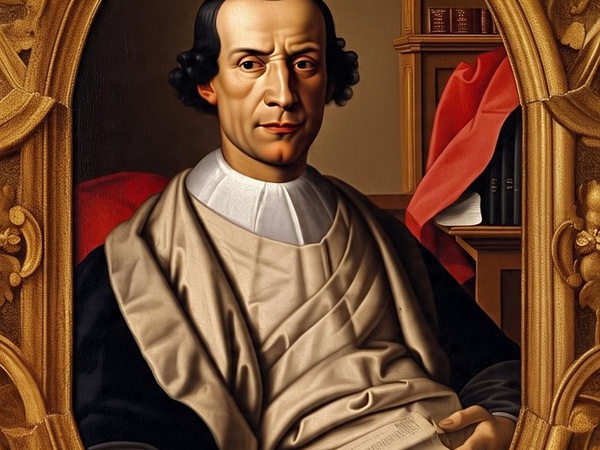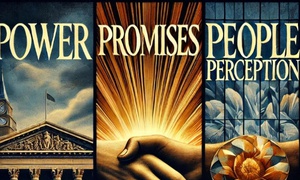<p><br></p><p><br></p><p>In the annals of political philosophy, few names spark as much controversy and fascination as Niccolò Machiavelli. Often painted as the father of political cynicism, Machiavelli’s name has become synonymous with manipulation, deceit, and ruthless ambition. But beyond the popular caricature of a cold strategist lies a realist legend whose insights into power, leadership, and human nature continue to influence politics, diplomacy, and governance centuries after his death.</p><p><br></p><p>Was he brutal? Perhaps. But more importantly, Machiavelli was brutally honest — a thinker who refused to romanticize politics and instead confronted its harshest truths.</p><p><br></p><p>The Man Behind the Name</p><p><br></p><p>Niccolò Machiavelli was born in Florence, Italy, in 1469 during the Renaissance, a time of immense cultural, artistic, and political change. As a diplomat and political advisor in the Florentine Republic, he observed firsthand the turbulence of Italian city-states, the rise and fall of powerful families like the Medici, and the frequent betrayal, war, and intrigue that defined his era.</p><p><br></p><p>His experiences shaped his most famous work, "The Prince" (1513), a short but powerful guide on how rulers should gain and maintain power. Though written as a gift to win favor with the Medici family, the book became a timeless manual on the mechanics of political control.</p><p><br></p><p>"The Ends Justify the Means"</p><p><br></p><p>Perhaps no phrase captures Machiavelli’s legacy more than the infamous idea that “the ends justify the means.” While those exact words never appear in "The Prince," they summarize his central message: a ruler must be willing to do whatever is necessary — including deception, cruelty, and manipulation — to protect the state and secure power.</p><p><br></p><p>For Machiavelli, morality was not irrelevant, but subordinate to political survival. He did not advocate evil for its own sake, but recognized that in a corrupt world, idealism alone cannot preserve order. A prince, he argued, must be both a lion to scare enemies and a fox to avoid traps — strength and cunning in perfect balance.</p><p><br></p><p>Realism Over Idealism</p><p><br></p><p>Unlike many thinkers of his time who focused on how rulers ought to behave, Machiavelli was more concerned with how they actually do. He stripped away illusions about politics and exposed the raw, often uncomfortable truths. This realism — or what some call cynicism — is what makes his work both feared and revered.</p><p><br></p><p>He observed that:</p><p><br></p><p>People are fickle and self-interested. Appealing to their loyalty alone is risky.</p><p><br></p><p>Fortune (luck) plays a role in success, but only the prepared and bold can harness it.</p><p><br></p><p>Fear is more reliable than love, especially in times of crisis.</p><p><br></p><p>A good leader must be willing to act immorally when the state demands it.</p><p><br></p><p><br></p><p>These ideas have earned him admiration from some and condemnation from others. To his critics, Machiavelli is a symbol of ruthless power politics. To his supporters, he is a genius who laid bare the real rules of leadership.</p><p><br></p><p>A Legacy That Lives On</p><p><br></p><p>Machiavelli’s influence is undeniable. Modern leaders, CEOs, generals, and politicians continue to read "The Prince" for its sharp insights. From Napoleon to Churchill, from corporate boardrooms to presidential campaigns, his principles have found application far beyond Renaissance Italy.</p><p><br></p><p>Ironically, Machiavelli himself died in 1527 as a relatively obscure figure, having never achieved the political power he analyzed so precisely. But in death, his writings gave him a far greater influence than he ever had in life.</p><p><br></p><p>Conclusion: Brutal, Yes — But Brilliant</p><p><br></p><p>Niccolò Machiavelli may not fit the mold of a traditional hero, but his contribution to political thought is unmatched. He forced the world to confront uncomfortable truths about leadership and power. In doing so, he became a brutal but realist legend — a man who saw the world not as it should be, but as it is.</p><p><br></p><p>In an age where political hypocrisy is rampant and image often overshadows substance, Machiavelli remains as relevant as ever. Not because he told leaders to be evil, but because he challenged them to be effective — whatever the cost.</p><p><br></p><p>You may be against the way he sees things,but let's argue about that in the comment section.</p><p> </p><p>This man is a realist,he says the word as he sees it.</p><p><br></p><p>NOTE:"The Ends Justify The Means"(Niccolò Machiavelli)</p>










Comments